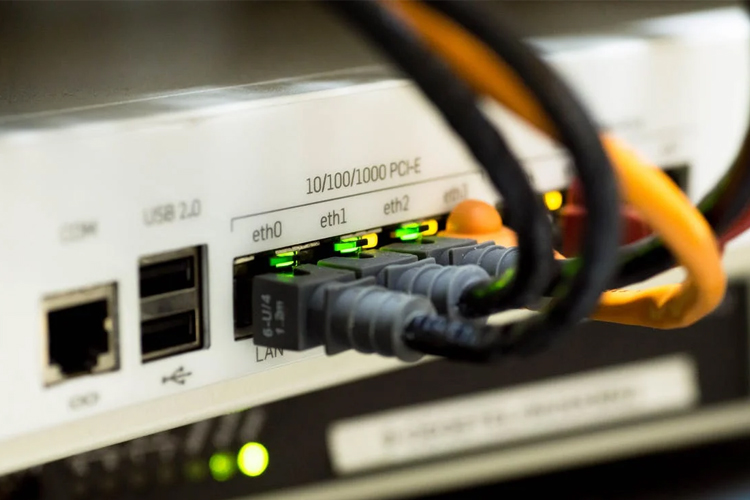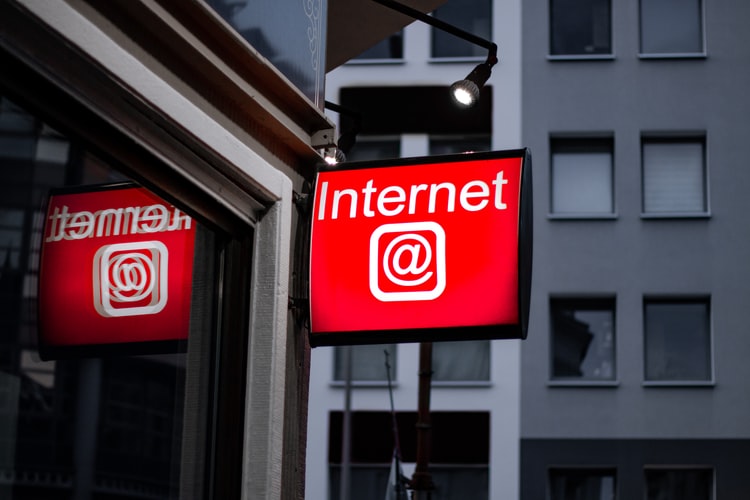What Is Satellite Internet?
On
October 4, 1957,
history was made when the Soviet Union launched the first satellite
into space: Sputnik I. Since then, satellites have changed the world for
the better, bringing advanced technology to all corners of the earth.
For
example, you can now receive internet signals through the use of
satellites. While the technology was lacking in the past, in recent
years, providers have really stepped up in their offerings, making it a
viable option today.
So is satellite internet a good choice for
you? Where can you get it? Plus, which internet service providers (ISPs)
are good to use?
Read on, as we'll give you all the important information you need to know to decide whether or not satellite internet is optimal for your situation.
What Is Satellite Internet?
As
we've pointed out above, satellite internet is where you get connected
online by the signals sent from a satellite in space. Because a
satellite in orbit can cover a wide area on earth, this is why the
coverage for this type of internet is practically 100% of the United
States.
This makes satellite internet a great choice for people
who live in urban areas, as they'll have limited internet choices. For
instance, the average internet user usually goes for either cable or DSL internet. This is because not only are these options high-speed, but they're also affordable and most of the country has coverage.
However,
there are a select few places that don't receive either type of
internet. In that case, satellite internet can be a lifesaver,
especially if you need to work digitally from home.
How Does Satellite Internet Work?
So how does dish internet work?
Well, first of all, there's the satellite orbiting over the earth. Each provider will have their own specific satellite.
When
you subscribe to an ISP, they'll give you a modem and install a
satellite dish on top of your house. Whenever you connect on your
computer, it'll request a signal through the modem, which then goes
through the satellite dish. The satellite dish then sends the request up
to the orbiting satellite.
Once the satellite gets the request,
it then sends its own signal to the provider. The provider projects
their service to the satellite, which then sends it back to your
satellite dish. The signal then travels through the dish into your
modem, and then your computer.
It may sound like a whole
complicated process, but in reality, everything happens so fast that you
don't even have to think twice about getting connected.
Is Satellite Internet Reliable?
In
general, satellite internet is reliable. However, because it depends on
a relay of signals through multiple channels, it should be quite
reasonable to expect that service may not always be fast or smooth.
Also,
because the internet signal is being transmitted through the air,
there's a higher chance that the signal will run into interference with
something while on the way to and from your computer. As a result, you
might experience periods of time where you'll get stutters in your
connection.
As far as speeds go,
you can get up to 100 Mbps in download speeds. However, latency is a
different story; while you might get fast speeds, the latency may be so
bad that for hardcore gamers, it's impossible to get a decent session
in.
Data Caps
Nowadays, many ISPs don't have data caps,
which means you can surf online for as much as you want. This allows you
to download as many files as you want, as well as stream videos without
worry.
However, some ISPs do still have data caps. When it comes to satellite internet providers, this is definitely the case.
So
even if you find a plan that offers high speeds, do note that you still
have to be very careful when you're connected. If you aren't mindful,
you may end up hitting your data cap early on in the month.
If you
do reach the maximum amount of data allowed, two things will happen.
For one, your internet speed will slow down dramatically. Secondly,
you'll have to pay extra for the additional data you use.
In some
cases, you'll be able to purchase extra data and/or use the internet
during off-peak hours that don't count toward your data cap. You'll have
to check with your ISP to see exactly what they offer.
Satellite Internet Versus Cable
If
you're lucky enough to have other options available where you live, you
might be wondering how satellite is like compared to cable internet.
With
cable internet, you'll get online by internet signals sent through
coaxial cables. These are the same ones used for cable TV, so if you're
able to receive cable TV where you are, then you'll most likely be able
to get cable internet.
The signal is sent through a modem, which
is connected to your computer. If you want to have wireless internet in
your house, you'll also have to get a router that broadcasts the signal.
In
general, cable internet will give you faster and more reliable speeds.
It also typically has cheaper prices. However, if cable lines haven't
been laid in your city, then you won't be able to get this service. This
pretty much leaves you with only satellite internet as an option.
Satellite Internet Versus Other Types of Internet
You
now know how satellite internet compares to cable internet. But how
does it fare when compared to other types of high-speed internet?
Take a look below to see how satellite internet stacks up to cable, DSL, fixed wireless, and fiber optic internet.
DSL Internet
As
we've mentioned above, the average internet user usually goes for
either cable or DSL internet. DSL stands for "digital subscriber line"
and doesn't use coaxial cables. Instead, it uses telephone wires.
If you're a long-time internet user, you might remember the days of dial-up internet.
Not only was it very slow, but it also took up your telephone line.
This meant you had to sign on and off often, or else you'd tie up the
phone line for the entire duration of you being online.
DSL gets
rid of this annoying problem. While it does still use telephone wires to
connect, it does so with unused lines. As a result, you can
conveniently surf online and use your landline to make calls
simultaneously.
DSL can be more reliable than cable internet
because of their singular connection. Cable internet uses a coaxial
cable connection that's shared with others, so speeds can drop if you're
online during peak hours. With DSL, that won't happen, since you're
connected through a single telephone line,
Fiber Optic Internet
Fiber
optic internet is the cream of the crop. It uses the latest in
technology to bring you such fast speeds, it can be up to 100 times
faster than DSL or cable.
With this type of internet, it uses
fiber optic cables instead of copper ones to relay internet signals.
This means light passes through these fiber options, giving you smooth
and outstandingly fast speeds.
But because this technology is so new, you won't find it in many places. Mainly, you'll get service in bigger American cities.
Otherwise,
you'll have to wait for an ISP to bring this service to your area. It
takes a huge investment to do, so you'll probably see the bigger names
arrive first.
Fixed Wireless Internet
Fixed wireless internet can possibly be an option if you're in an urban location. This is because all you need is to receive the internet signals.
Fired
wireless internet works through the broadcast of radiowaves from a base
station. To get these radiowaves, you'll need to install a receiver
from the ISP. Once the receiver is in, it'll start communicating with
the nearest base station to get you connected.
With this type of
internet, you don't need a router or modem. Instead, you just turn on
your device, search for the network, and hop online. While this can be
very convenient, it does come with its caveats.
Extreme weather
conditions can affect the signal strength, which means service can cut
out at inopportune times. Other things (like trees) can also interfere
with the signal. Fixed wireless internet is also usually more expensive
than other internet options.
Satellite Internet Reviews
While
there are many satellite internet providers out there, certainly none
come close to the services offered by HughesNet and ViaSat. These are
the 2 biggest names in the industry, which means they offer the most
bang for your buck.
Read on to find out more about both companies to see which one's right for you.
HughesNet
As expected, HughesNet covers all 50 states in the US. They serve over 308 million Americans, with a coverage of 33,131 zip codes in the nation.
The
biggest states they cover include California, Texas, and New York. As
far as top areas served goes, HughesNet covers Los Angeles, Houston, San
Antonio, Brooklyn, Chicago, New York, and Miami.
HughesNet's top
speed isn't too impressive; it's 25 Mbps for downloads and 3 Mbps for
uploads. However, if you aren't doing anything too digitally intensive,
and it's just you and/or another person in the household, then 25 Mbps
should be sufficient.
Data caps start at 20 GB per month and go
all the way up to 50 GB per month. You'll get an additional 50 GB per
month to use between 2:00 am and 8:00 am.
Depending on the plan
you subscribe to, expect to pay anywhere between $70 to $150 per month.
Setup costs $100 and you'll also have to pay $10 per month for equipment
rental in the first 6 months; this goes up to $15 afterward.
ViaSat
ViaSat Internet is formerly known as Exede. They also have coverage in all 50 states and serve around 308 million customers.
Like
with HughesNet, ViaSat's greatest coverage is in California, Texas, and
New York. The major cities they serve are also Los Angeles, Houston,
San Antonio, Brooklyn, Chicago, New York, and Miami.
However,
their top speed is much higher than HughesNet's. You'll get up to 100
Mbps for downloads, although this will be in select areas.
For
their packages, you can select either 12 or 25 Mbps for downloads and 3
Mbps for uploads. Prices range from $50 to $150 per month.
What's
great is although most of their packages have data caps (ranging from 12
to 50 GB per month), they do offer a package that has no data cap.
After you've used 100 GB, then the speed may slow down a little.
For
the other plans, you can either buy more Priority Data after you've hit
the cap or just connect at much slower speeds. Do note that you can use
the internet from 3:00 am until 6:00 am without it counting toward your
data cap.
HughesNet vs ViaSat
When it comes to HughesNet vs ViaSat, they're pretty similar, as far as speeds and prices go.
However,
if you want "unlimited" data, ViaSat wins in that aspect, as they have
the Unlimited Silver 25 plan. On the other hand, if you want more
off-peak hours to use your internet, HughesNet wins for this category,
as their off-peak hours are 6 hours, as opposed to just 3 hours with
ViaSat.
In the end, you'll have to weigh up the pros and cons yourself to see which one works better for your personal situation.
Get Connected With Satellite Internet
As
you can see, satellite internet can be a wonderful option if you live
in the outskirts of town and barely get any reception for other types of
internet. Considering satellite internet pretty much has coverage all
over the United States, you won't ever find yourself disconnected from
the internet.
While satellite internet isn't as great as other
types of broadband internet, plus it's more expensive in some cases, it
still can be completely worth it when you're able to get online, no
matter where you're located. So give satellite internet a look and
choose the ISP that suits your need and budget.
Want to sign up satellite internet that's affordable? Then use our zip code searcher now. You'll get to browse through thousands of plans for the most cost-effective solutions.

.jpg)


